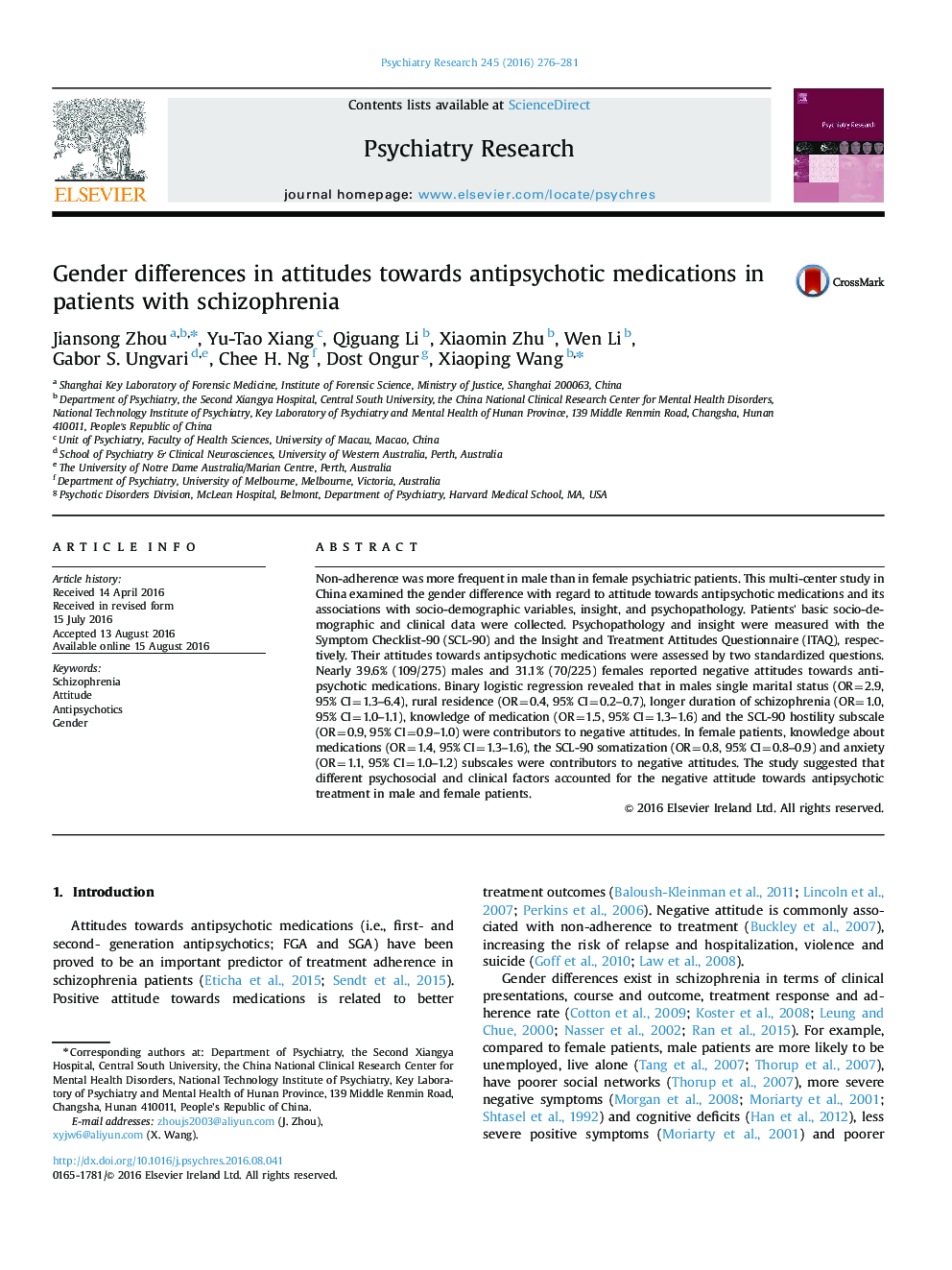| Article ID | Journal | Published Year | Pages | File Type |
|---|---|---|---|---|
| 6812416 | Psychiatry Research | 2016 | 6 Pages |
Abstract
Non-adherence was more frequent in male than in female psychiatric patients. This multi-center study in China examined the gender difference with regard to attitude towards antipsychotic medications and its associations with socio-demographic variables, insight, and psychopathology. Patients' basic socio-demographic and clinical data were collected. Psychopathology and insight were measured with the Symptom Checklist-90 (SCL-90) and the Insight and Treatment Attitudes Questionnaire (ITAQ), respectively. Their attitudes towards antipsychotic medications were assessed by two standardized questions. Nearly 39.6% (109/275) males and 31.1% (70/225) females reported negative attitudes towards antipsychotic medications. Binary logistic regression revealed that in males single marital status (OR=2.9, 95% CI=1.3-6.4), rural residence (OR=0.4, 95% CI=0.2-0.7), longer duration of schizophrenia (OR=1.0, 95% CI=1.0-1.1), knowledge of medication (OR=1.5, 95% CI=1.3-1.6) and the SCL-90 hostility subscale (OR=0.9, 95% CI=0.9-1.0) were contributors to negative attitudes. In female patients, knowledge about medications (OR=1.4, 95% CI=1.3-1.6), the SCL-90 somatization (OR=0.8, 95% CI=0.8-0.9) and anxiety (OR=1.1, 95% CI=1.0-1.2) subscales were contributors to negative attitudes. The study suggested that different psychosocial and clinical factors accounted for the negative attitude towards antipsychotic treatment in male and female patients.
Related Topics
Life Sciences
Neuroscience
Biological Psychiatry
Authors
Jiansong Zhou, Yu-Tao Xiang, Qiguang Li, Xiaomin Zhu, Wen Li, Gabor S. Ungvari, Chee H. Ng, Dost Ongur, Xiaoping Wang,
